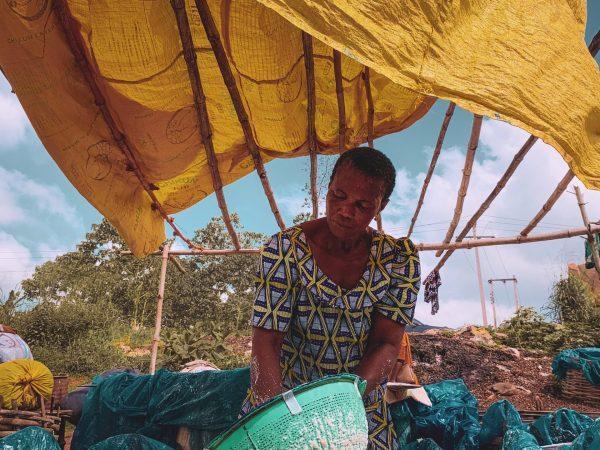Improving the Care Cascade for NCDs in the Caribbean
In the Eastern Caribbean, over three-quarters of all deaths are attributed to NCDs. Under the 2007 Declaration of Port-of-Spain, member states of the Caribbean Community (CARICOM) jointly affirmed their resolve to reduce the number of preventable deaths from NCDs though enhanced health policies and service delivery. Beginning in 2021, the World Bank team has partnered closely with the Ministries of Health, Chief Medical Officers, Permanent Secretaries, and other health authorities in four Caribbean countries to support this larger effort by assessing national care cascades for NCDs.
Care cascades are used to evaluate patient outcomes across sequential stages of care, from the first screening and diagnostics visits through disease treatment and control. By tracking patient retention across the entire care cascade, health system actors can develop an understanding of the factors which define and influence patient experiences, and lead to treatment failure. The World Bank supported Dominica, Grenada, Saint Lucia, and Saint Vincent and the Grenadines to assess each country’s national care cascade for diabetes and hypertension management and develop country-specific clinical guidelines to provide patient-centered care and improve health outcomes.
Although this work took a similar form across countries, approaches in each context were tailored based on government needs and priorities. Collaboration with Caribbean stakeholders in 2023 ensured that activities aligned with local development objectives, and that primary ownership of the care cascade assessment process and products would be upheld by national health authorities. In Dominica, Grenada, and Saint Lucia, Ministry of Health counterparts opted to develop full care cascade analyses, whereas Saint Vincent and the Grenadines leveraged flexible funding to develop and deploy a suite of decision support tools and NCD registries that will enhance NCD surveillance across the country. A two-day workshop was carried out in 2023 to disseminate these decision tools among doctors and nurses, which supported countries to adopt these tools from the World Bank.
National care cascades in Dominica, Grenada, and Saint Lucia were evaluated using an early version of the World Bank NCD System Assessment Tool, another product of collaboration with Access Accelerated. The NCD System Assessment Tool evaluated various strategic and operational levels for healthcare quality improvement in each country, such as planning, financing, human resources, physical infrastructure, and information systems. This novel methodology produced fresh insights into NCD care cascades in the Caribbean and provided national policymakers and healthcare professionals with actionable recommendations to achieve better outcomes for patients with NCDs. In Saint Lucia, this activity helped health authorities improve hypertension and diabetes screening services for 83,353 individuals, diagnostics for 56,554 who showed increased risk at screening, and treatment for 41,474 who enrolled after receiving diagnoses.
While each of the knowledge products delivered through this activity spoke to discrete needs within a specific health context, cross-collaboration between government counterparts in the different Caribbean nations has elevated the impact of this activity’s evidence generation and knowledge dissemination. At the request of partners in Grenada, the World Bank facilitated a 2023 knowledge sharing event with Saint Vincent and the Grenadines to showcase the decision support tools that had been developed for doctors and nurses in that country. Insights from this activity were shared during the 2023 Small Island Developing State Ministerial Conference on NCDs in Barbados, which culminated in the Bridgetown Declaration on NCDs and Mental Health. This declaration serves as a testament to the activity’s contribution to shaping high-level policy discussions on health priorities.
NCDs are rightly becoming recognized for the threat they represent to human capital development in the Caribbean, and the World Bank and CARICOM are supporting countries to strengthen their commitment to prevent and control the proliferation of these chronic conditions. Under the USD25 million Health System Strengthening Project, insights from the mixed-method assessment of care cascades in Saint Lucia were incorporated into a pilot program focused on performance-based budgeting for hypertension and diabetes. This model is set to be expanded to more primary healthcare facilities, incentivizing providers to improve quality care for people living with NCDs. With NCDs presenting a persistent health risk in the Eastern Caribbean region, leadership from Ministries of Health and support from the World Bank continue to drive collective action and progress towards a healthier future.

ENHANCING ACCESS TO KNOWLEDGE AND FINANCING TO SAFEGUARD HUMAN CAPITAL
Many of the World Bank’s projects in partnership with Access Accelerated work to enhance individuals’ abilities to age healthily, particularly by prioritizing access to new knowledge and financing.

PRIMARY HEALTH CARE AS AN AVENUE TO RESPOND TO NATIONAL AND REGIONAL NEEDS
The World Bank is acutely sensitive to the importance of primary health care and several projects funded by Access Accelerated support this first point of care.

HOW READY ARE COUNTRIES TO ADDRESS NCDS AMONG AGING POPULATIONS?
Access Accelerated support enables the World Bank to reimagine care by leveraging its ability to collate actionable evidence and conduct advanced analytical work. The result: a report that guides countries with aging populations to assess their readiness to respond to NCDs.